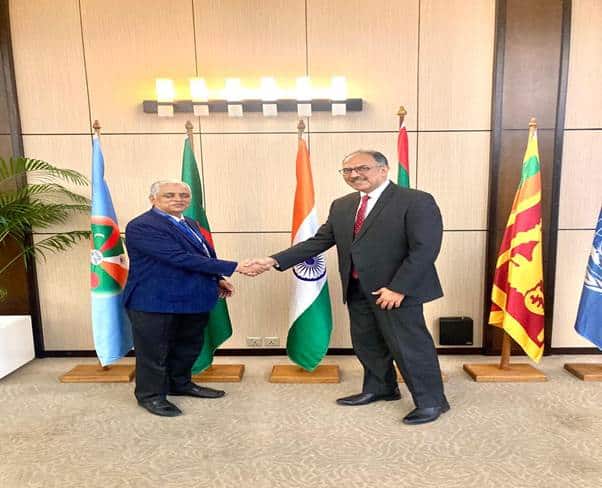India Takes Charge of Bay of Bengal Fisheries

In a significant development for regional fisheries management, India has officially taken over the Chairmanship of the Bay of Bengal Inter-Governmental Organisation (BOB-IGO) from Bangladesh. This historic transition occurred during the 13th Governing Council Meeting held in Malé, Maldives. The meeting was attended by senior representatives from Sri Lanka, Maldives, and Bangladesh, highlighting the collaborative spirit of the event. The conference was part of a larger initiative titled “Policy Guidance for Mainstreaming Ecosystem Approach to Fisheries Management (EAFM) in Small-Scale Fisheries,” organized by the Maldives’ Ministry of Fisheries & Ocean Resources in partnership with BOBP-IGO. This gathering, which took place from February 20 to 22, 2025, aimed to enhance sustainable fisheries practices in the region.
Leadership Transition and India’s Commitment
The Indian delegation was led by Dr. Abhilaksh Likhi, Secretary of the Department of Fisheries, Government of India. During the meeting, Dr. Likhi emphasized India’s commitment to building upon the achievements of BOBP-IGO as it assumes leadership. He assured member nations that the Department of Fisheries would work diligently to elevate the organization’s success. Dr. Likhi expressed optimism about the future, stating that India would provide clear guidance for the development of the fisheries sector across all member countries.
This leadership transition is not just a ceremonial change; it represents a renewed commitment to regional cooperation and sustainable fisheries management. Dr. Likhi’s remarks underscored the importance of collaboration among member nations to address common challenges. He highlighted that India aims to foster mutual support through the exchange of knowledge, technology, and best practices. This collaborative approach is expected to strengthen the region’s blue economy while ensuring the protection of marine ecosystems.
Focus Areas for Regional Cooperation
During the meeting, several key areas for increased regional cooperation were identified. These include marine resource management, training and capacity-building programs, and research and policy advocacy. Addressing issues such as Illegal, Unreported, and Unregulated (IUU) fishing was also a priority. Dr. Likhi called for enhanced collaboration with organizations like the Food and Agriculture Organization (FAO) and the Southeast Asian Fisheries Development Center (SEAFDEC).
The emphasis on regional cooperation is crucial for the sustainable development of fisheries in the Bay of Bengal. By working together, member countries can share resources and expertise to tackle pressing challenges. The collaborative efforts are expected to harmonize economic development with the protection of marine ecosystems. This approach not only benefits the fisheries sector but also contributes to poverty alleviation in the region.
Advancing Small-Scale Fisheries
India’s leadership in BOBP-IGO comes at a time when small-scale fisheries are increasingly recognized for their role in food security and livelihoods. Dr. Likhi highlighted India’s developmental policies aimed at improving the well-being of small-scale fisheries. The government is implementing various schemes and programs focused on sustainability and capacity building.
As India assumes the Chair, it aims to lead member nations in effectively addressing the challenges faced by small-scale fisheries. This includes promoting sustainable practices and ensuring that the benefits of fisheries management reach local communities. The goal is to achieve significant progress in the development of small-scale fisheries, aligning with India’s broader national vision of ‘Viksit Bharat 2047.’
Observer Voice is the one stop site for National, International news, Sports, Editor’s Choice, Art/culture contents, Quotes and much more. We also cover historical contents. Historical contents includes World History, Indian History, and what happened today. The website also covers Entertainment across the India and World.

